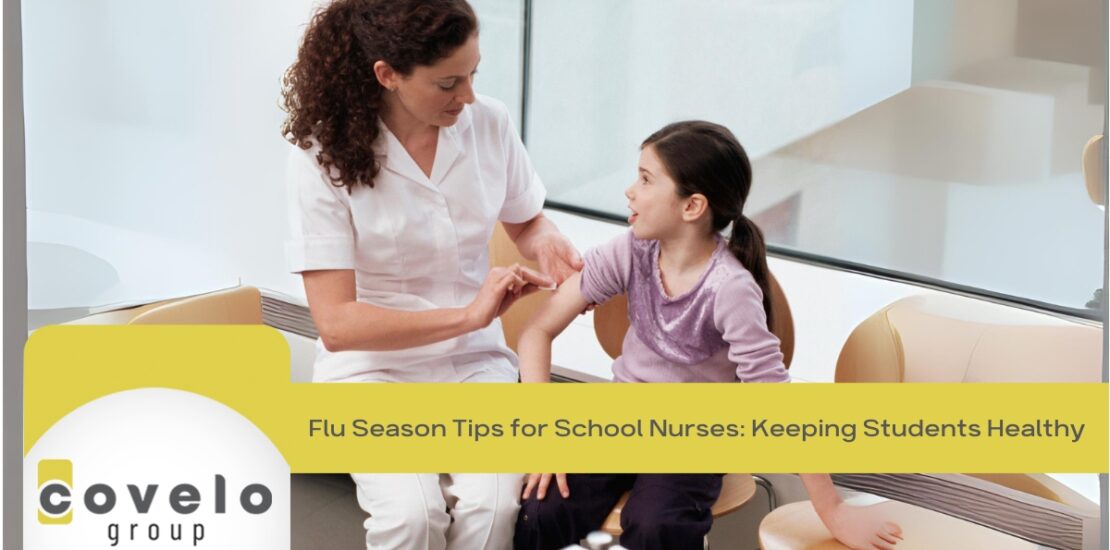- October 23, 2024
- Posted by: Covelo Group
- Categories: Educational Services, Nurses

The Centers for Disease Control and Prevention (CDC) estimates that between 12,000 and 52,000 people died annually from influenza between 2010 and 2020. During the 2022-2023 season, there were more than 360,000 flu-related hospital visits and more than 15 million total medical visits.
Flu is a serious business, and school-aged children are at a high risk of contracting and spreading the disease. While seasonal flu activity typically peaks between December and March, influenza viruses can cause illness from early October straight through to June, affecting virtually the entire average school year.
Here are some key steps to keep your students, staff, and families healthy this flu season:
Be a vaccine proponent.
Seasonal flu vaccinations are recommended for everyone six months of age and older. The vaccine protects against the viruses most likely to spread and cause illness. These viruses are reviewed each year and changed as needed. More information is available at Selecting Viruses for the Seasonal Influenza Vaccine/CDC.
Take everyday preventive actions.
To stop the spread of influenza and other germs, encourage students and staff to stay home when sick. Review your school policies and consider revising any that make this difficult. Recommend flexible sick-leave policies and cross-training for staff so others can cover for sick coworkers. Discourage the use of perfect attendance awards.
Place extra emphasis on good hygiene.
This is all about reminding people not to overlook basic but critical habits, including:
- Regular, effective handwashing: Use soap and warm water for at least 20 seconds. Dry hands with a paper towel, then use it to turn off the tap. Include handwashing time in all student schedules.
- Provide adequate hygiene supplies within easy reach, including clean and functional handwashing stations, soap, paper towels, alcohol-based hand sanitizer (for instant use when soap and water are not nearby), tissues, and no-touch trash cans.
- Teach everyone to cover their coughs and sneezes with a tissue or bent arm. If they use a tissue, they should put it in a trash can and wash their hands afterward.
- Encourage people to keep their hands away from their noses, mouths, and eyes.
Teach people what to do if someone gets sick.
Anyone who experiences flu-like symptoms should stay home until at least 24 hours after they no longer have them, without the use of fever-reducing medications. If they have severe or emergency signs of illness, they should get immediate medical care. Knowledge is power when it comes to fighting the flu.
- If students or staff feel ill while at school, separate them from others until they can be picked up to go home. If possible, designate a “sick room” for this purpose. Staff here should be limited in number and should not be at higher risk for illness if they get sick.
For more tips to help you grow and succeed in your career as a school nurse – or to find your next great job as an educational-based healthcare provider – click to contact Covelo Group, or search available jobs today.

